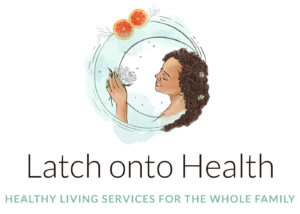So you are thinking about having a little one of your own but don’t know where to start? We say start at the beginning! From tracking your menstrual cycle to increasing your intake of fertility promoting foods, below is a quick start guide to prepping your body for pregnancy!
Track, Track, Track
Simply put, to make a baby you have to fertilize your eggs. An easy and fun way to do this is to have sex while you are ovulating. Thus, to increase your chances of conception its best to have sex while you are ovulating! From apps to kits, there are tons of ways you can track your cycle and predict your ovulation days. You could also do it the old-fashioned way by charting your cycle using basal body temperature and cervical mucus to determine ovulation.
With this method, you would take your body temperature at the same time every day, upon waking before doing anything else including sitting up. You could also chart your cervical mucus or discharge, from period to dry, sticky and egg-white. Ovulation occurs near the end of your cycle and often results in your basal temperature going up 1 degree F and staying there along with discharge resembling egg-whites. (1) After a few months, you will see a pattern of days that fit the bill. Having sex at least every other day during ovulation will give you the best chance of conceiving. Alternatively, it also lets you know when not to have sex if you aren’t ready to take that next step.
Fertility Foods
Increasing your intake of foods that support the reproductive system is paramount on your conception journey. At the top of the list are natural sources of folate including dark leafy greens like kale, along with broccoli, asparagus, and citrus. Increasing folate before trying to get pregnant will help protect your future babe as the risks of defects related to low folate occur early on in pregnancy often before you know you are pregnant. (2)
We have talked a lot about how incredible pineapple is here on LoH. Did you know it can support your fertility too? Pineapple has been found to increase the quality of your cervical mucus by helping sperm remain healthy and mobile as they make their way to the egg. Pineapple can also help with uterine inflammation as it is rich in the powerful anti-inflammatory bromelain. Since many reproductive disorders are associated with chronic inflammation, including PCOS, endometriosis and ovarian cysts, it is extra important to eat pineapple, turmeric, ginger and other anti-inflammatory foods.
Lastly, look no further than the Brazil nut. These delicious nuts are rich in selenium, which not only helps strengthen the uterine wall for implantation but also acts as a mild anticoagulant. An early miscarriage may be due to blood clots forming in the uterine lining or developing fetus which makes the addition of selenium-rich foods paramount as you prepare your body for conception and pregnancy. (3)
Exercise and Enjoy
Maintaining a good exercise regimen will help keep you toned, promote great blood circulation and help you relax. Find a form of exercise you love to do, whether it is walking the dog, yoga or cycling and beyond, and be consistent. At the same time, remember to slow down and take time out for yourself. An indulgent bath, a massage or curling up with a book are all wonderful ways to take a step back and relish these quiet moments while you still have them.
Have more questions? Want us to delve deeper into a particular topic? Leave us a comment below or schedule a free virtual consult today!




Leave A Comment